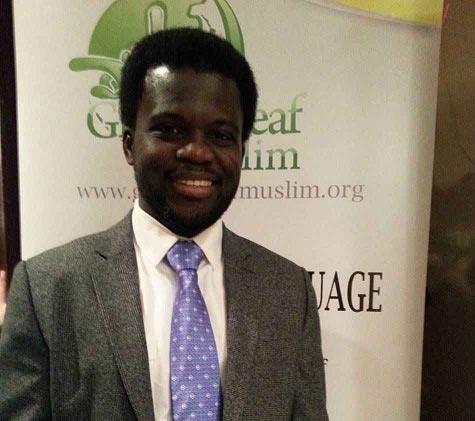Deaf Muslims Struggle for Their Faith

“Every time I’d go to a mosque, I’d sit there and I’d just watch the speaker and I couldn’t understand a word that person was saying,” Nashiru Abdulai, 38-year old Ghanaian-born Virginian, who has been deaf since contracting meningitis at the age of 10, told Desert News through an interpreter.
Finding no interpretation services at the mosque, he gave up trying to access the mosque for a time.
With same problem facing estimated 55 million hearing impaired Muslims, Abdulai decided to fulfill an earlier promise he made to other young Ghanaian when he left to America at the age of 19, establishing an organization for deaf Muslims.
He started Global Deaf Muslims (GDM) in 2005 to address the rights and needs of deaf Muslims across the globe.
The organization sets its vision on its website as “A Muslim Ummah that recognizes the rights of deaf Muslims and actively strives to ensure that it is accessible and inclusive of all Muslims.”
“To advocate for the advancement and inclusion of Deaf Muslims in the Muslim Ummah and to raise awareness of Deaf Muslims issues within the broader Muslim community,” it adds in its mission
GDM now has chapters in California, Virginia, Minnesota, Illinois and Texas — as well as in Canada and Ghana.
It is also raising $480,000 to fund the project of translating the Qur’an to American Sign Language (ASL).
“Information about Islam is seldom available in sign language, making it difficult to educate deaf Muslims about Islam and for individuals to conduct their own research,” GDM explains on its website — describing the situation as a “systematic exclusion of Deaf Muslims” from mosques and Islamic organizations.
Awareness
For hearing impaired Muslims, the biggest problem facing them is the lack of awareness of their existence.
Daoud Nassimi, a professor of Islam at Shenandoah University and Nova College who is helping GDM to translate the Quran into ASL, points out that even when leaders are aware of their existence, they are not aware of their needs.
“The first thing that they need is interpreters,” he says.
He added that with few Muslim interpreters, mosque leaders have to be convinced to hire interpreters for Friday sermons (Khutbah), talks, classes and other occasions for the deaf community.
“They need to be convinced that many deaf members exist in their communities, and those members cannot come and benefit from the mosque and programs unless there are interpreters available,” Nassimi says.
“They should be convinced that the money that they would spend on hiring the interpreters is really worthy of this important cause.”
Inadequate numbers of interpreters is not the only challenge to serving the deaf.
Most interpreters are not taught how to sign religious terms to interpret religious thoughts and beliefs.
To address that issue in Islam, the Qatari Social and Cultural Center for the Deaf presented delegates at the first international conference on deaf Muslims last November with a 376-page Islamic sign language dictionary developed with other Arabic signing communities.
But the problem for Americans is it was in Arabic Sign Language. Most Americans use American Sign Language. Any dictionary of Islamic terms must be universally accepted by deaf Muslims everywhere, Abdulai says.
Moreover, scholars should encourage sign language translations so that deaf Muslims can receive the word of God on the same terms as anyone else.
“There is a kind of acceptance right now in translation that there is absolutely no way that you could just simply always find an ideal translation to anything,” Salah Basalamah, an associate professor at the University of Ottawa’s School of Translation and Interpretation, said.
Source: On Islam



